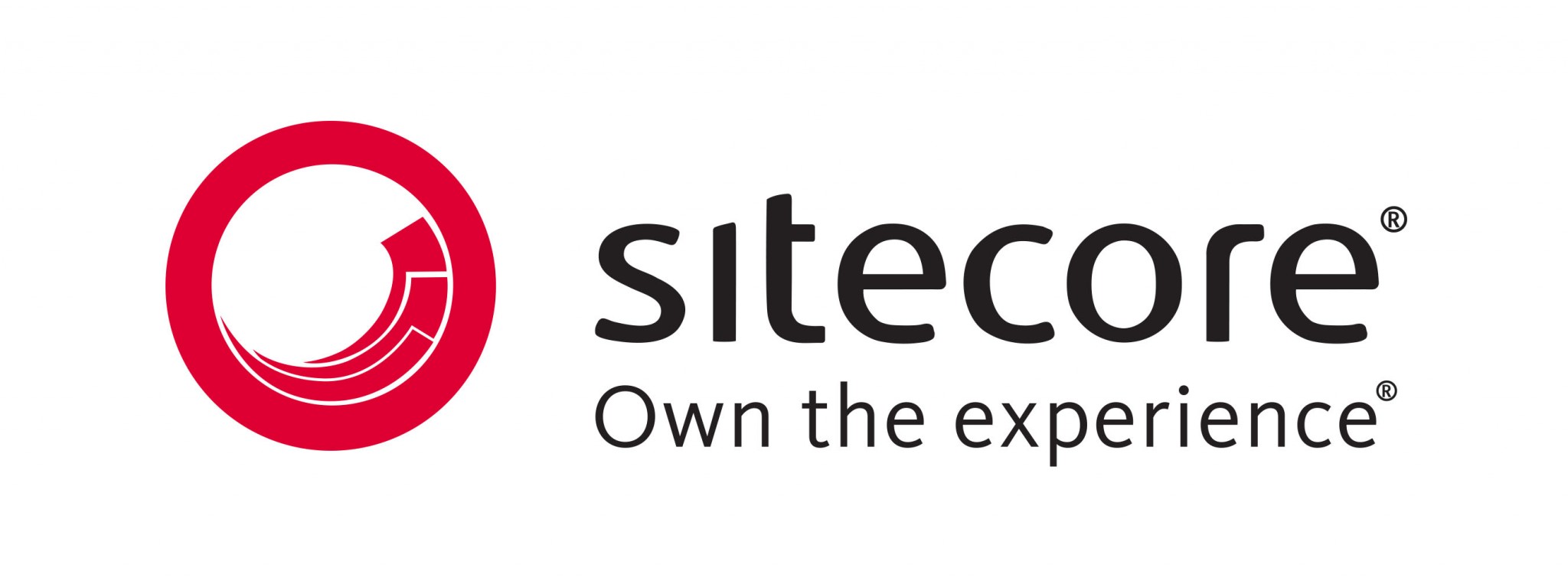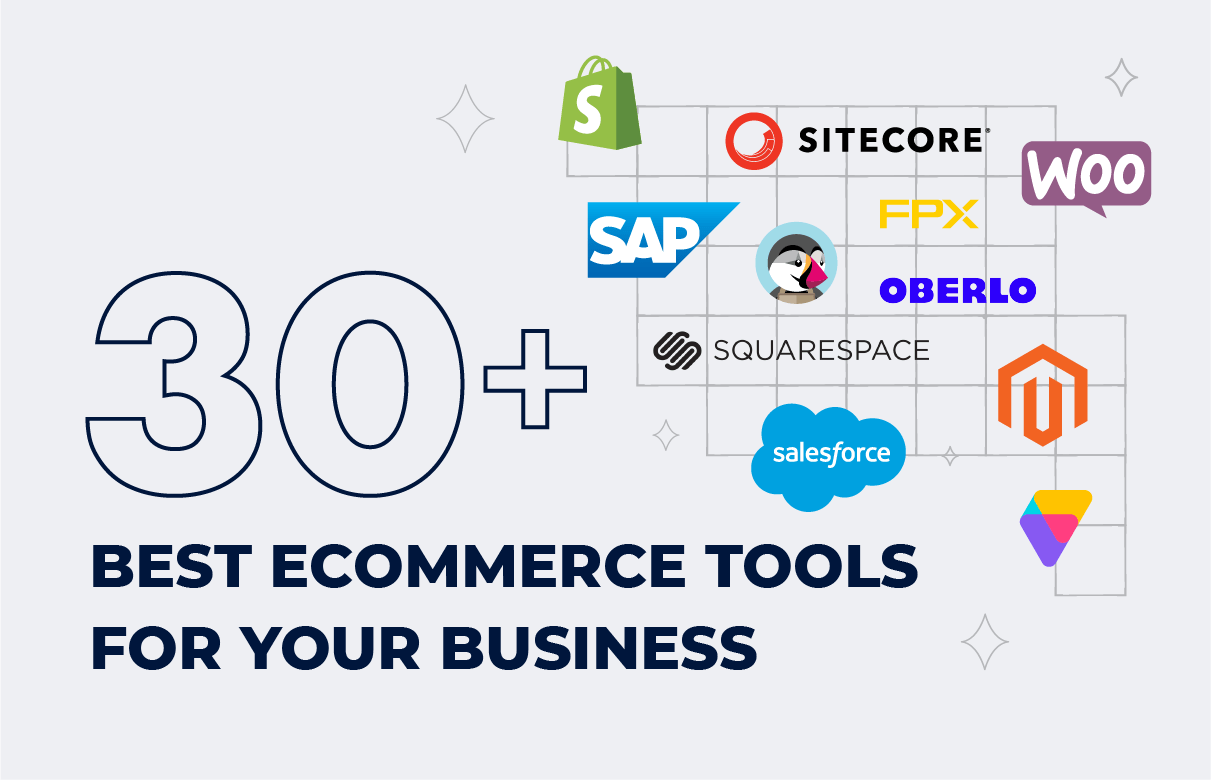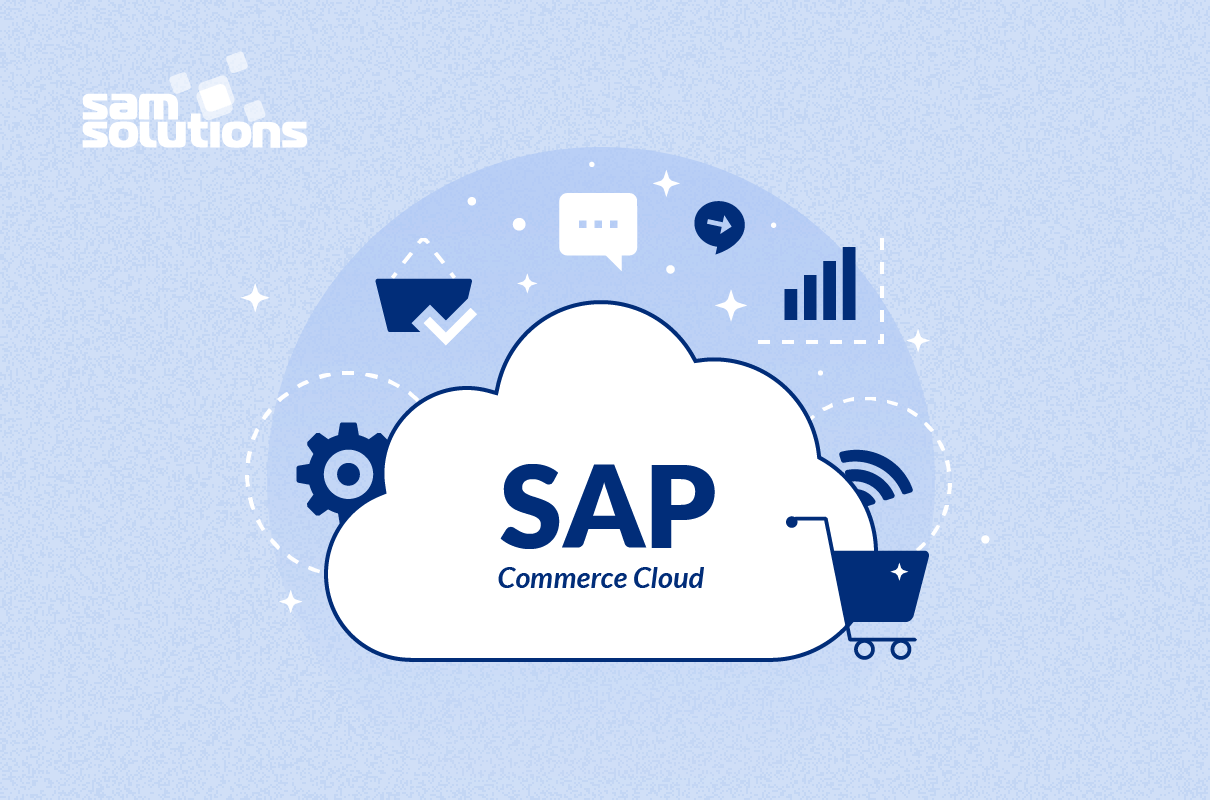eCommerce is becoming an integral part of our lives, and experts predict that the number of digital buyers will reach $2.14 billion by 2021. Under such conditions, an efficient eCommerce platform is not a competitive advantage — it’s a prerequisite for any retail and wholesale business. Companies that use low-tech solutions should bring them up to date with the modern business environment, and companies that don’t have any should prioritize investing in a solution.
However, to stand out in the market, having a solution for eCommerce is not enough; the solution must be necessarily efficient. What is an efficient eCommerce platform, and how exactly do businesses benefit from it? Let’s figure it out!
Request SaM Solutions’ ecommerce development services to grow your client base and boost profitability of your online sales.
What is an eCommerce Platform?
An eCommerce platform is software that allows companies to manage all their online and offline commercial operations, such as sales, orders, payments, shipping, inventory management and others, from a single platform.
Over the years, eCommerce software has significantly evolved from simple online stores to comprehensive digital commerce platforms that blend a variety of capabilities. Today, businesses use the following software types — separately or in combination — to run their online commercial operations:
- Comprehensive CX and eCommerce suites — all-in-one solutions that embrace all steps of the customer journey, all channels, all workloads and all sources of profit
- eCommerce websites — robust solutions that enhance the functionality of brick-and-mortar stores on the web
- Shopping carts — add-ons that supply non-commerce software with payment and check-out functionality
- Marketplaces — solutions that bring multiple third-party merchants on a single platform
- Auctions — solutions that automate the bidding process
- Points of sales (POS) — software that enables the efficient performance of all your points of sale and integrates them into the corporate system
- Mobile applications — m-Commerce software that helps approach users on their mobile devices
- Product information management systems (PIM) — systems that track and harmonizes product information to provide customers with relevant descriptions, images and other product details
- Inventory management systems — systems that track product availability to keep customers up to date

The list isn’t exhaustive, but these solutions are the most popular with businesses.
Modern eCommerce should handle not only B2C and B2B commerce, but B2B2C (business-to-business-to-consumer), C2B (consumer-to-business), C2C (consumer-to-consumer), B2G (business-to-government) and others that are also catching up.
The following features are must-haves for eCommerce systems — without them an online commerce solution makes no sense:
- Product pages
- Product catalogs
- Shopping cart
- Checkout
- Inventory and order management system
- Promotion system
- Notifications
- Marketing tools
- Reporting and analytics

To create a truly efficient and integrated platform, a company should extend these basic capabilities with a much wider range of features.
How an Efficient eCommerce Platform Benefits Businesses
An efficient eCommerce system is not just about putting all commercial operations in one place. A sound CX and eCommerce solution is the company’s online storefront that surpasses the functionality of a brick-and-mortar store.
An efficient solution accompanies customers throughout their journey and provides them with relevant information — in other words, it performs the job of a competent sales assistant in order to gain the following benefits:
- High customer retention and conversion: customers don’t abandon a company’s site and don’t switch to competitors
- Increased sales efficiency: companies optimize their sales-related processes and reduce extraneous expenses
- Insight-driven commerce: companies base their decision-making on valuable insights derived from in-depth analytics
- Customer satisfaction: users enjoy perfectly balanced and personalized customer journeys that resonate with them and increase loyalty
- Brand recognition: with one-of-the-kind look and feel, companies stand out among the competition
- Wider, 24/7 customer reach: companies approach their customers through all possible channels — web browsers, mobile apps, augmented reality, virtual reality and others — when it’s convenient for customers
The Must-Have Features of an eCommerce Platform
Although every company adjusts its online storefront to its business requirements, technical capabilities and available financing, certain features are must-have. If provided, they help companies meet many goals, including high-profit margins and overall business success.

Customer Experience as the North Star of eCommerce
Today’s commerce depends heavily on customer engagement, and the higher it is, the higher the profit for the company. To successfully convert their prospects into happy, loyal clients, companies need to provide a frictionless customer experience (CX).

That is why an increasing number of companies are struggling to create engaging shopping experiences. How do they attain it? By providing a wide range of features, including personalized content, user-specific recommendations and intuitive UX/UI.
An efficient eCommerce and CX solution can easily perform this demanding task with a wide array of tools that are based on AI, machine learning, Big Data, AR, VR and IoT technologies.
Omnichannel Commerce and Marketing
Customer experience should be not only user-specific, but also consistent and connected across all touchpoints. Robust eCommerce software makes the best use of headless CMS that enables omnichannel content delivery.
It allows companies to move beyond conventional customer-reach tactics and distribute unified content via all possible channels, including those powered by AI, AR, VR and IoT.
Flexibility and Quick Adjustment to Changes
In a highly turbulent world, a quick response to market changes is a prerequisite that helps businesses survive no matter how severe the conditions are.
When the world changes, a powerful eCommerce platform that is based on a flexible configuration of working patterns and algorithms adjusts easily and quickly to the new reality. It helps companies make the most out of their business even in times of stress when demand surges or slumps.
User-Friendly Everything
Not just user interface but also navigation, switching from one product to another, checkout and all other aspects must be intuitive, easy to do, and should prevent users from abandoning the site. Since customer interactions do not end with purchases, businesses should also provide a positive after-sales experience.
Apart from helping your customers and demonstrating a deep understanding of their needs, it’s an excellent way to increase conversion. That is why businesses need to make sure that their eCommerce solutions enable a friendly and intuitive shopping experience.
Seamless Integration with Brick-and-Mortar Stores
Since many retailers have both online and offline stores, seamless integration between digital and physical facilities is a prerequisite.
Under these conditions, only highly integrated systems can ensure that assortment, stock availability, prices, promotions and other important information are harmonized. Proper integration is also important if a company enables online booking of items from its offline stores and provides a find-in-store functionality.
M-Commerce-Friendliness
In 2019, more than a quarter of the total eCommerce transactions were performed from mobile devices, and an even steeper rise of the popularity of m-Commerce is expected. That is why the use of mobile devices for online shopping is another point to consider.
To be proactive and prepare one’s online sales operations for m-Commerce, a company should ensure proper device compatibility and quick site loading on mobile devices. An efficient online commerce platform allows companies to consistently distribute their content across different screen sizes 24/7.
Branded Look and Feel
To stand out in the competitive market and be remembered by customers, businesses should strive for better brand experiences and higher recognition. That’s why eCommerce software should not only provide a high-quality design but should also flexibly adjust to a company’s requirements.
Seamless Integrations with Corporate Systems
A platform’s ability to flawlessly integrate with heterogeneous solutions — CRM, ERP, CMS and others — helps a company create a unified IT ecosystem.
In such a way, a company keeps all its content in a single hub, enables proper management of its workloads and ensures seamless teamwork between departments.
High-End Security
Although software security is a requirement that goes without saying, in the case of online commerce, it’s critical. eCommerce software deals with sensitive information, which makes it a frequent target for cybercrimes.
E-merchants need to invest in reliable eCommerce systems that have up-to-date security features, such as PCI DSS compliance, VPNs, SSL certificates, access management, layered security and others.
Examples of Efficient eCommerce Platforms
There is no such thing as the best eCommerce platform. Depending on a company’s specifics, goals and challenges, they should choose solutions that best meet their needs.
To respect the interests of different companies, we provide five categories of eCommerce platforms, from which businesses can choose a proper eCommerce solution, and illustrate them with prominent examples. The categories and examples are the following:
- An enterprise-level solution — SAP Customer Experience
- A solution for SMEs — Magento Commerce
- A solution for companies that need superb content management — Sitecore Experience Commerce
- A plugin for WordPress for startups and companies on a tight budget — WooCommerce
- Custom development
SAP Customer Experience for Large Enterprises

SAP Customer Experience (ex. SAP Hybris) allows companies to create highly responsive online stores that adjust shopping experiences to changing customer requirements and behavior patterns on the fly.
A long-standing leader of Gartner’s Magic Quadrants for Digital Commerce, SAP CX has everything that a business may need: SAP Commerce Cloud, SAP Sales Cloud, SAP Marketing Cloud, SAP Service Cloud and SAP Customer Data Cloud.
The platform supports efficient commercial operations, easy customer communication, fruitful marketing campaigns and smooth business processes. This enterprise-level solution automates every level of customer interaction, providing a complete understanding of buyer personas and helping companies envisage their needs.
For the high cost of SAP CX, a company gets the following business benefits:
- Unparalleled eCommerce functionality to streamline business operations and increase their efficiency
- Advanced marketing automation to provide customers with experiences they seek at every step of their journey
- End-to-end customer service to minimize efforts on meeting customer requests at every step of their journeys
- Safe customer data management to create a long-term relationship of trust with customers
Magento Commerce for SMEs

Magento is a leader of Gartner’s Quadrant for Digital Commerce Platforms and is one of the most widely used eCommerce platforms in 2020-2021. With two versions of the Magento eCommerce platform, small to medium businesses are free to choose an option that is in line with their budget.
Magento Open Source is a light version that has basic functionality, while Magento Commerce is a full-fledged solution that provides outstanding eCommerce functionality and helps create a frictionless shopping experience. It isn’t free-of-charge, but for companies that are serious about the efficiency of their online commerce, it’s worth every penny.
The advantages of the Magento platform are the following:
- Outstanding eCommerce functionality for sales effectiveness and high profits
- Omnichannel commerce to approach customers most efficiently
- Unlimited scalability and flexibility to adjust the solution to market conditions and user behavior patterns
Sitecore Experience Commerce

Sitecore Experience Commerce is an offspring of Sitecore — a company that created a world-leading CMS and has long been a leader of Gartner’s Magic Quadrants for Web Content Management and Digital Experience Platforms.
The vendor leveraged its expertise to create an eCommerce solution that fuses content management, eCommerce and marketing. Sitecore XC is a part of the Sitecore Experience Cloud that also includes Experience Manager, a CMS, and Experience Platform, a marketing automation solution.
As a result, the platform helps companies gain the following capabilities:
- Efficient online stores to create shopping experiences that match buyer personas and enable headless commerce
- All-in-one content management to create a unified brand experience that is consistent across all sites and locations and delivered to any touchpoint
- Intelligent marketing campaigns to create personalized customer experiences and deliver them via relevant channels
WooCommerce

WooCommerce is an eCommerce plugin for WordPress, the world’s most popular CMS, and is a silver bullet for companies that cannot afford large investments in eCommerce software. Nowadays, it’s the most popular solution for online commerce: 28% of eCommerce companies use it.
Although it doesn’t require large spending, a company needs technical support to use the platform, as the deployment and configuration of the plugin is a challenging task.
If properly tuned, WooCommerce provides a wide range of features an online store may need, such as payments, marketing, shipping and m-Commerce. In addition to the out-of-the-box functionality, a company can also download special-purpose extensions, although on a paid basis.
WooCommerce has a slight hitch: companies that need extended functionality, extreme tuning agility and the support of large item ranges may find WooCommerce insufficient.
Custom CX and eCommerce Solution Development
There is always a workaround for companies that have specific requirements that no platform can meet — custom development of an eCommerce platform. It allows a business to create a one-of-the-kind solution that stays in tune with its unique demands, enables limitless flexibility and relies on best practices in development.
Although the plan seems to be flawless, it has one significant drawback: the astronomical cost.
Your Most Important Investment
An eCommerce system is the center of a company’s commercial operations, and the more a company is tied with trade, the more it should prioritize introducing a powerful and reliable solution. A good platform is the best investment a merchant can make as it doesn’t just streamline the management of a company’s processes, but it also helps increase conversions and sales efficiency.
With 10 years of eCommerce development experience, we suggest that our eCommerce clients pay proper attention to this matter so that they can select a solution that helps them achieve their business goals.
To learn more about our eCommerce expertise or discuss your project-to-be, contact our specialists!



















 The Latest 15 Information Technology Trends in 2024
The Latest 15 Information Technology Trends in 2024 Top 10 Embedded Software Development Tools
Top 10 Embedded Software Development Tools IaaS vs. PaaS vs. SaaS: What’s the Difference?
IaaS vs. PaaS vs. SaaS: What’s the Difference? IoT Development: Top 15 Internet of Things Tools and Platforms in 2024
IoT Development: Top 15 Internet of Things Tools and Platforms in 2024 10 Examples of Predictive Analytics
10 Examples of Predictive Analytics







![What Is Ecommerce Customer Service? [Including 8 Best Practices]](https://www.sam-solutions.com/blog/wp-content/uploads/Customer-Service-in-eCommerce.png)



